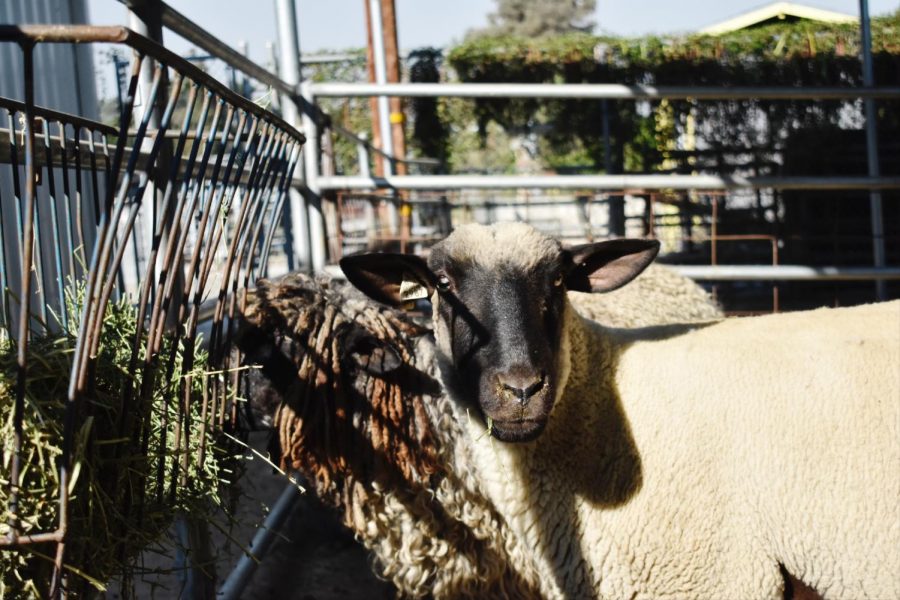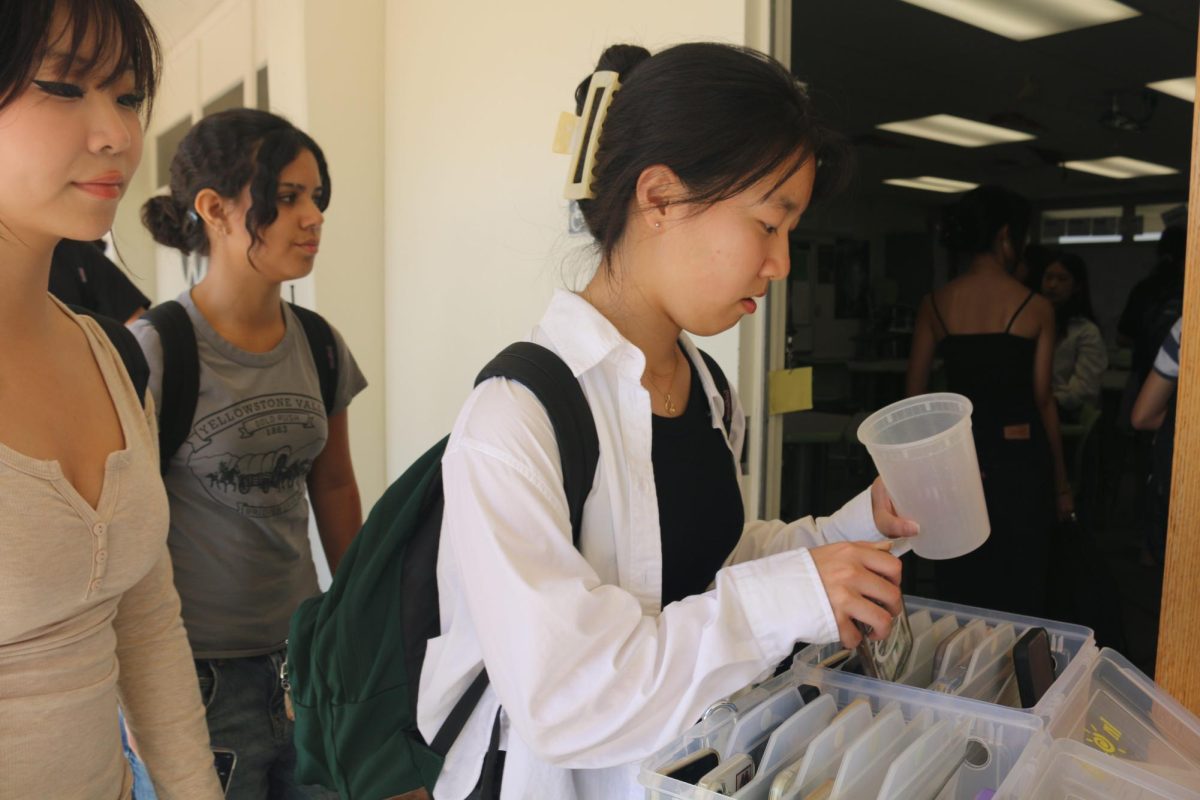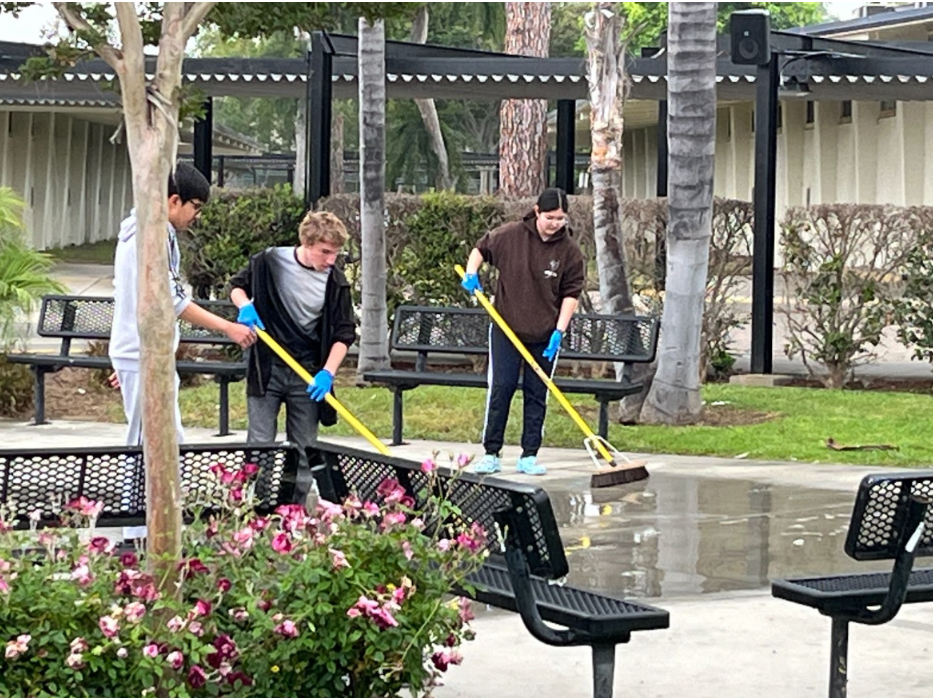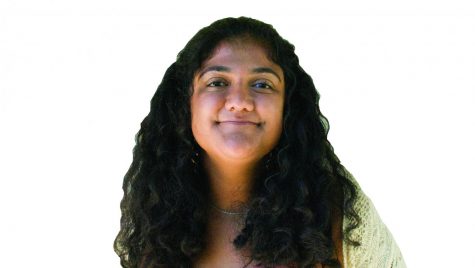Holiday gift giving came early at the Sunny Hills agriculture farm when the pregnant goats and sheep gave birth to four babies over the last month, with one sheep expected to deliver soon.
Currently, the farm has seven goats and four sheep on-site, which will be the only animals present until students are able to return to campus full-time, agriculture teacher Jeremy Cates said.
“The animals that are here are a part of our breeding projects and run year-round usually,” Cates said. “What we want to do is have students see [the goats] throughout the process of gestation, having baby goats, and it all has to be done in a specific month.”
On Dec. 10, one of the two pregnant sheep on the farm gave birth to one baby lamb, while the other is expected to deliver soon.
Additionally, one of the two pregnant goats gave birth to one kid on Nov. 1 and two days earlier the other pregnant goat gave birth to twin baby goats.
Though the baby animals do not have official names yet, a white goat with a large brown spot is called “Dumbo,” Cates said.
As is routine, the agriculture students are raising these animals to be shown at the Orange County Fair in the upcoming summer, Cates said.
Initially, over the summer, the Fullerton Joint Union High School District [FJUHSD] banned all livestock from any of its campuses that had farms for agriculture students because the coronavirus pandemic had forced the closure of all live, classroom instruction.
However, now the agriculture farm is once again open to students for both hybrid learning during school and other obligations, such as taking care of the animals, before and after school.
“During hybrid learning, there are students in class and on the farm, but the students that take care of the animals are mainly there before and after school,” Cates said. “This is a normal practice [for students], not just during COVID-19.”
Now that students are permitted to return to campus, the agriculture program hopes to increase student involvement in raising animals.
“It is our goal to have more students raising animals on the farm during the second semester, Cates said. “We have about 50 students interested in [raising] lambs, pigs and goats.”







![Students and staff across the Fullerton Joint Union High School District [FJUHSD] received emails promoting a part time job offer with pay. The messages were set from compromised FJUHSD accounts.](https://shhsaccolade.com/wp-content/uploads/2025/09/image1-2-1200x527.png)






